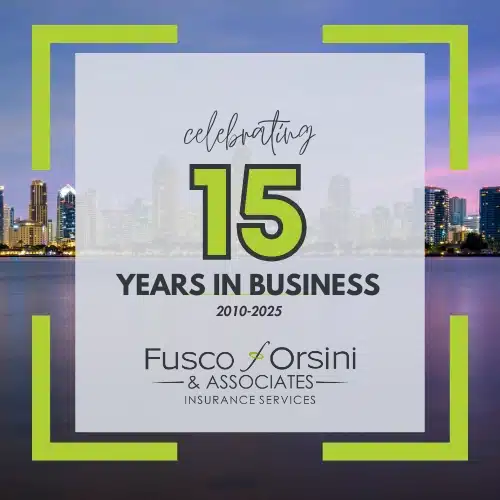



Optimizing Your Business Auto Insurance Policy: Why Adding All Drivers Matters
Business auto insurance can be complex for company owners, but ensuring adequate coverage is essential to protecting your business, employees, and financial stability. Your policy must be comprehensive enough to mitigate risks and prevent coverage gaps that could lead to financial and legal complications.
Before determining whether all drivers should be added to your business auto policy, it’s essential to understand who qualifies as “insured” under your commercial auto insurance coverage.
The Business Auto Coverage Form categorizes insured individuals or entities under the “Who Is An Insured?” section. These classifications include:
1. Named Insured
The “Named Insured” refers to the business or individual explicitly listed in the policy’s declarations. As the named insured, you are covered under the policy even if you are not physically driving the vehicle during an accident.
2. Permissive Users (Varies by Carrier)
Permissive users operate a covered vehicle with the owner’s permission. This includes employees who drive company-owned, rented, or borrowed vehicles.
Important: Some insurance carriers limit coverage for permissive users. Carefully review your policy’s stipulations to avoid unexpected claim denials.
3. Omnibus Insureds
The Omnibus Clause extends coverage to individuals who may not be explicitly named in the policy but still qualify as insured under the policy’s terms. This provision ensures that all potential drivers are covered under your business auto insurance.
The vehicles covered under your policy depend on the covered auto designation symbols listed in the declarations section:
Symbol 1 (Any Auto): Provides the broadest level of coverage, including liability protection for any vehicle used in the business, whether owned, hired, or non-owned.
Symbol 2 (Owned Autos): Covers liability claims for vehicles you own.
Symbol 8 (Hired Autos): Extends coverage to vehicles your company hires or rents.
Symbol 9 (Non-Owned Autos): Provides liability coverage for vehicles not owned by the company but used for business purposes.
Understanding these symbols ensures your company has the necessary liability protection for all business-related driving activities.
Adding all employees who may drive company vehicles allows your insurance carrier to assess risk and determine appropriate coverage accurately. Failing to list drivers could lead to claim denials, leaving your business financially vulnerable.
Insurance underwriters evaluate drivers, including past violations or accidents, based on their history. Ensuring all drivers are disclosed allows the carrier to price the policy accurately and provide appropriate risk mitigation solutions.
If an unlisted employee is involved in an accident, the insurance carrier may deny the claim, citing a failure to disclose all potential drivers. This could result in significant financial losses, including out-of-pocket expenses for vehicle repairs, legal fees, and settlement costs.
Conducting a thorough driving record check before hiring is essential for businesses where driving is a primary responsibility—such as delivery services, contractors, or taxi companies.
Drivers with multiple infractions or a history of reckless behavior can significantly increase insurance premiums. If you hire an employee with a poor driving record, consider the potential financial implications before finalizing their employment.
We understand business owners are busy, and drivers may sometimes be overlooked when updating policies. To safeguard against coverage lapses, consider adding broadening endorsements to your business auto policy. These endorsements provide additional flexibility, ensuring that newly hired drivers are covered until they can be formally added to the policy.
If employees use their personal vehicles for business-related tasks, you must include a Non-Owned Auto Liability Endorsement. This endorsement provides liability protection if an employee causes an accident while using their personal vehicle for work purposes.
A salesperson stops to visit a client while on vacation.
An office manager picks up supplies during a lunch break.
A supervisor delivers a sample product to a client on the way home.
Since an employee’s personal auto insurance may not provide sufficient liability coverage for business-related accidents, adding this endorsement ensures your company is protected from potential legal and financial repercussions.
Are you confident your business auto policy covers all necessary drivers and situations? If you’re unsure, we offer a comprehensive assessment of your current policy to identify any gaps in coverage.
Fill out the form below to speak with an insurance advisor who can help tailor your policy to meet your business’s unique needs.
Protect your business today—ensure you have the right auto insurance coverage!